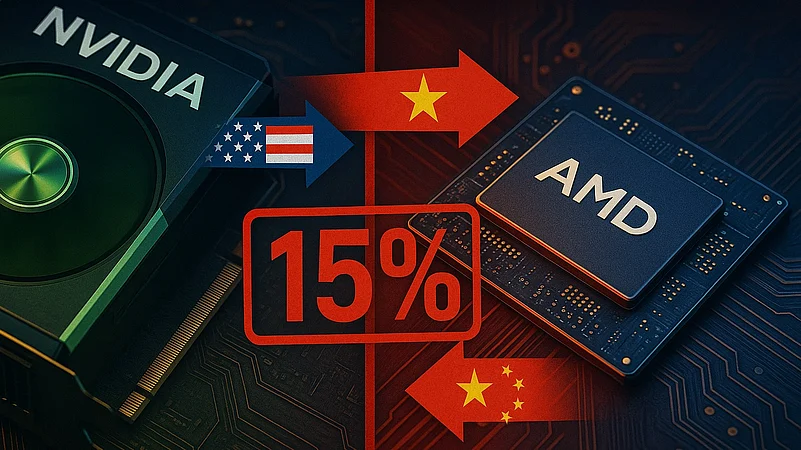Nvidia and AMD have reportedly agreed to an unprecedented arrangement with the U.S. government, committing 15% of their China AI chip sales revenue in exchange for export licenses. According to the Financial Times, the deal covers Nvidia's H20 and AMD's MI308 chips, both tailored for the Chinese market to comply with earlier U.S. export restrictions.
Sources, including a U.S. official, said the companies accepted the revenue-sharing condition as part of recently issued licenses, though Washington has yet to decide how to use the funds. Analysts estimate Nvidia could sell around 15,000 H20 units in China by 2025, generating roughly $23 billion in revenue. The arrangement has no precedent in U.S. export control history and aligns with the Trump administration's pattern of tying market access to measures that bolster domestic economic gains.
The licenses come after months of restrictions imposed in April, which had nearly eliminated Nvidia and AMD's access to the Chinese market. In mid-July, both companies announced they expected to resume shipments, but final approvals were delayed by a backlog at the Bureau of Industry and Security. Nvidia's license was granted on August 6, two days after CEO Jensen Huang met President Trump at the White House, with AMD's approval following soon after.

However, the approvals have drawn scrutiny on both sides of the Pacific. In the U.S., former Deputy National Security Advisor Matt Pottinger and other security experts urged the government to block H20 sales, warning the chips could strengthen China's advanced AI capabilities. Nvidia dismissed the claims as "misleading," arguing that U.S. leadership in AI technology depends on competing in the Chinese market.
In China, regulators remain concerned about security risks. The Cyberspace Administration of China summoned Nvidia on July 31 to address alleged vulnerabilities and potential "backdoors" in the H20. State-affiliated media outlet Yuyuantantian published a detailed critique on August 10, labeling the chip unsafe, technologically inferior to the H100, and environmentally inefficient. It claimed that if U.S. demands for backdoor access were met, products like the H20 could be exempted from export controls—a notion Nvidia has repeatedly denied, stating its chips contain no backdoors, kill switches, or monitoring software.
The security review adds a new layer of uncertainty for Nvidia, which now faces the challenge of not only meeting U.S. conditions but also addressing Chinese compliance concerns. Some Chinese commentators have suggested Beijing could adopt a reciprocal measure—charging foreign chipmakers a similar 15% of local sales after security clearance, with proceeds funding domestic AI chip R&D.
The controversy emerges as China seeks to reduce its reliance on high-bandwidth memory (HBM) technology for AI development, with Huawei expected to unveil a breakthrough in AI inference at an industry forum on August 12. The timing underscores the geopolitical stakes surrounding the AI hardware race—and the delicate position of companies caught between U.S. and Chinese tech agendas.
+86 191 9627 2716
+86 181 7379 0595
8:30 a.m. to 5:30 p.m., Monday to Friday
